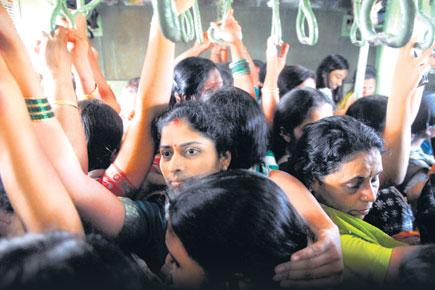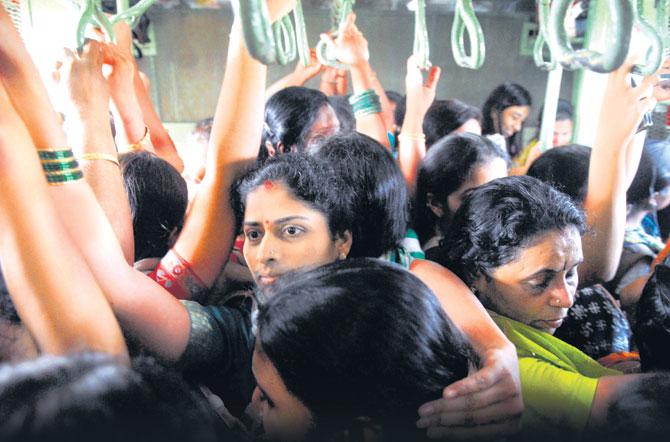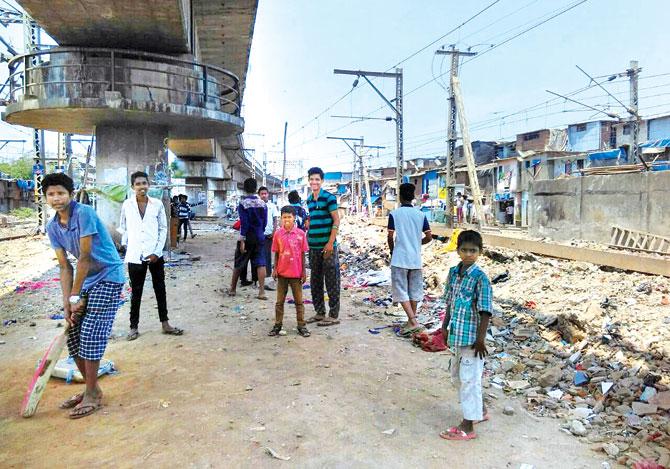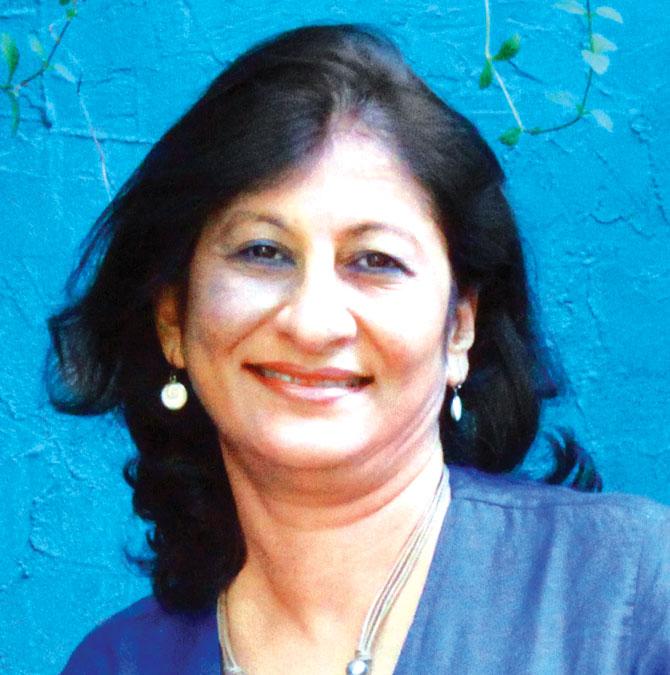The Revised DP 2034 has introduced a section on gender for the first time. But, is it just lip service?

What do women want? — a question that has perplexed humanity for ages (supposedly) has been braved by the Revised Draft Development Plan (RDDP) 2034. In a first, the Municipal Corporation of Greater Mumbai (MCGM), which is seeking suggestions on the RDDP from the public till July 29, has introduced a section titled Gender, Special Groups and Social Equity, in which it hopes to customise Mumbai to the needs of its female population. The provisions in this section include multipurpose housing for working women (1,000 sq m area in each administrative ward), vending (hawking) areas specially for women, public toilets, and an adhar kendra (500 sq m in each electoral ward).

ADVERTISEMENT
"The RDDP 2034 proposes a departure from gender blindness to gender mainstreaming," states the introduction to the section. Urban planners and women's groups have called the move a step in the right direction, but suspect the said provisions will not be implemented in their true spirit. After all, the earlier Draft Development Plan, made public in February 2015, was met with staunch criticism, including for its lack of gender planning, by over 250 organisations. Now, the draft's overall objective is clear: 'To make women a much larger proportion of Mumbai's work force by providing opportunities that enhance their happy experience of working and living in Mumbai.'
"At the outset, this is a great move. However, the RDPP conceptualises 'gender' as participation in the workforce only," says Hussain Indorewala, assistant professor at Kamala Raheja Vidyanidhi Institute for Architecture Environmental Studies, Juhu. "But there are dimensions to gender planning, such as leisure and safety, which have not been discussed in the RDPP," he continues.
Urban planners at Urban Design Research Institute (UDRI), who have been deliberating on the DP for the last eight years, are unsure that the 10-point objectives and the eight provisions are enough. Stating that the three-and-a-half pages allocated to gender in the two-volume 800-odd- page RDDP is nothing more than mere tokenism, a member of UDRI states, "Right from a watered-down understanding of gender ('Married women with small children should be able to go to work') to the lack of nuance in the provisions ('The city should provide a host of services'), there is a lot to be desired in the DP 2034; the mere allocation of space is not gender planning." Experts say that the challenge to comprehensive gender planning is the absence of enough women in the planning committee.
Not just mommies
Care centres, adhar kendras and women skill centres promised in each ward is a pretty big step, agree experts. It may not mean much for the urban elite, but for lower income groups, this could go a long way. But here is the primary struggle — all women do not want the same thing. Dr Armida Fernandez, founder trustee at Society for Nutrition Education and Health Action (SNEHA), says, "We talk about women in general but it is hard for women to come together. These provisions will have to be modified across the city, in each ward." She adds, "Whenever we think of centres like these, we develop those in areas where space is available. Instead, we have to do a need assessment in the city."

Boys playing in Bengalipura, a small slum pocket in Wadala. Here, young girls avoid playing outside. Creating open spaces, say experts, makes little sense to women if they aren't safe, free of alcoholics, drug addicts and street sexual harassers. Pic/Pukar
It is easy to plan, but difficult to maintain these centres, she says. SNEHA, which has run centres such as these in low-income communities and informal settlements in Ghatkopar, Dharavi and Govandi, has found that these are most successful when women take ownership. These are potential oases for women and children; they get information on health, a room for youth to study, or counselling in cases of domestic violence — but only if the women say they want it. "We found much success with a crèche we ran in Kumbharwada, Dharavi, where they would leave their children and pick them up after work. This crèche was run along with local women — something the MCGM might want to keep in mind. Without community ownership, women think it is 'sarkaari', not 'ours'," says Fernandez.
The RDDP's thrust on workforce participation has blindsided several other infrastructural amenities for other categories of women. What about homemakers and single mothers? Dr Nandita Shah, co-director of Akshara, says that in Mumbai, there are a large number of single parent families, where women run the household. "Their struggle is more intense. We need to know how their needs can be addressed," she says, adding that RDDP's proposal to have women's hostels in every ward is a positive step.
Another group of women whose say matters is homemakers. "Women's workforce participation, as stated in the RDDP, was at 16.38% in 2011," says a young urban planner. "With such a low workforce participation, women spend more time at home and commute, by foot, to places nearby, whether it is the market or a school. With so much pedestrian activity, instead of building flyovers, we need to focus on safety of women pedestrians," she says. She recalls an incident in Kurla, in 2012, when a line of water tankers parked in a lane became the 'adda' for men to gather around. The result: women were molested as they passed by, even during the day. "These tankers were parked there because traffic density has increased and lanes are being used as parking space — something the DP draft does not address," she says.
UDRI observes that with FSI increase as proposed by the RDDP and the rise of SRAs, which seem like 'vertical slums', the condition of women is doubly sore. "When people suffer, women suffer the most," says the UDRI member. Imagine an SRA building with no water supply, such as that of Lallubhai Compound in Mankhurd, says an urban planner from UDRI. "Usually the woman is given the task of fetching water, and that applies even if she has to go up and down a high-rise," he says.
Social mindsets need to change
"We must remember that the RDDP is meant for physical transformation of the city and not a social one," says Indorewala. His words resonate at Bengalipura, a small slum pocket in Wadala, where young girls avoid playing outside. It's the same issue in Dharavi's Indira Nagar. The reason: Parents feel that these open spaces are unsafe for their daughters. "There are a lot of alcoholics, drug addicts and street sexual harassers in our area. How do you expect to send our girls out?" a concerned parent informed Afsana Khatoon Mehboob (19), a Barefoot researcher with NGO Pukar, who was doing a study on the lack of open spaces for children.

Nandita Shah
The girls, too, said they'd only prefer playing outside if they had adequate security. "But, why are we putting restrictions on girls when someone else is actually the problem? Society at large has never let women be who they are," says Manasi Pinto, programme facilitator, Pukar. "What's the point of allotting centres only for women, when right outside these spaces, women will still continue to feel threatened?" she asks.
Sameera Khan, co-author of Why Loiter? Women & Risk on Mumbai Streets, published in 2011 by Penguin India, says that though Mumbai is a relatively friendlier city for women, they still have to negotiate to access public space. "Women who give the appearance of being out without a clear purpose are not particularly encouraged."
Neha Singh, founder of the Why Loiter movement, which started in 2014 as an offshoot of the book, agrees. Singh and her team of girls would deliberately move out after midnight, only to receive cold stares from women, and leering looks from men. "The idea was that women in spaces become such a regular sighting that people don't find it odd," says Singh, adding that instead they found themselves struggling within these spaces. "I think mindsets need to change for any such planning to achieve complete success."
Shah says that the 'recognition of gender' in the RDDP is a positive step. "The fact that gender has got a special mention in RDDP in itself is a big deal. We have worked very hard to get land allocated. Now, we have to ensure that all of this does not stay on paper."
 Subscribe today by clicking the link and stay updated with the latest news!" Click here!
Subscribe today by clicking the link and stay updated with the latest news!" Click here!







